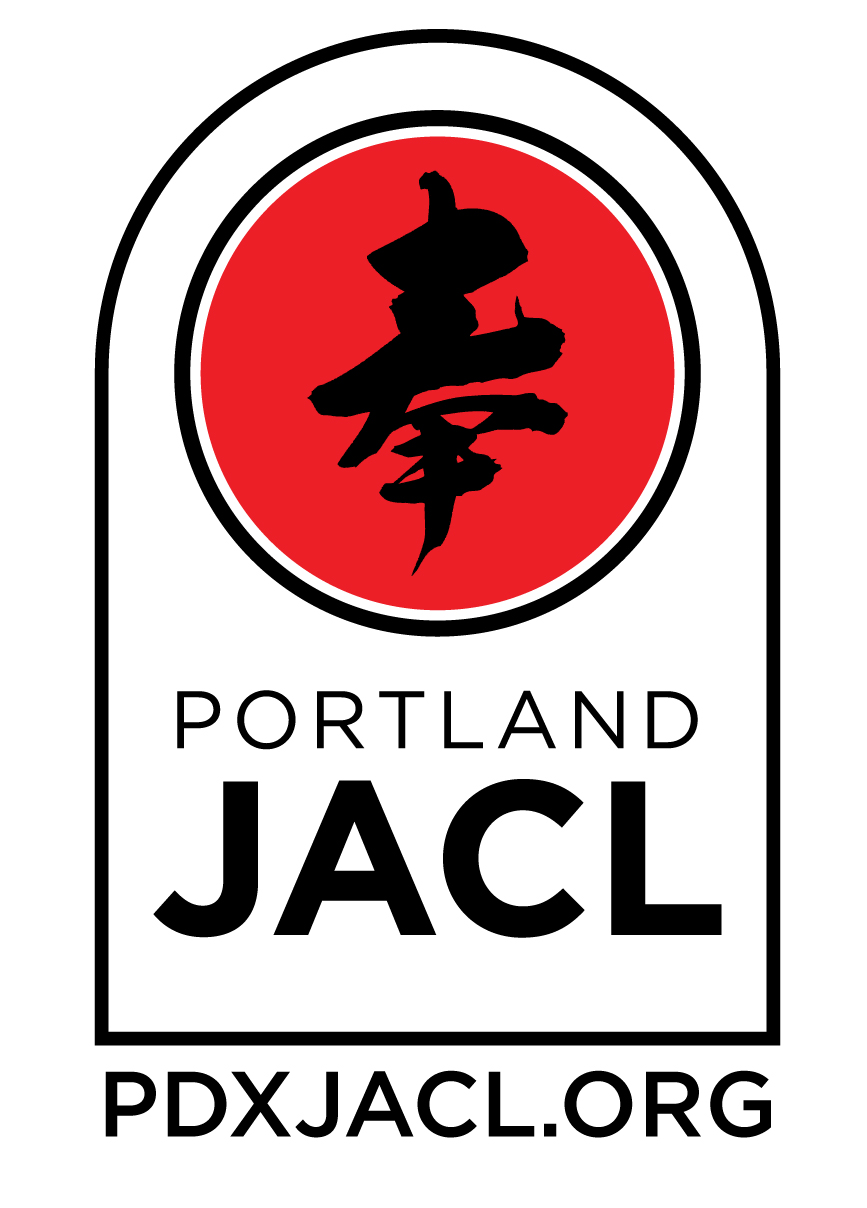Portland JACL’s Day of Remembrance Event 2022
Board Member Message by Jenny Yamada
Portland JACL hosted Day of Remembrance 2022 in-person at Kennedy School on February 26. The focus of the event was around a screening of Jon Osaki?s documentary film Reparations, which explores the present-day struggle for redress for Black Americans and the role that solidarity between communities has in breaking down systemic racism.
After the screening, Jon joined us as a panelist along with artist, organizer and member of Nikkei Progressives, traci kato-kiriyama (tkk). Nathan Soltz, Sen. Frederick?s Chief of Staff, joined in place of the senator. Ed Washington moderated the discussion.
Our panelists stressed the importance of studying the past, paying attention to state and city politics, and keeping pressure on our representatives. The topic of reparations has been part of JACL National?s focus for several years. As the push to pass H.R. 40 continues, it?s important to recognize what is happening locally too.
One of my takeaways from our DOR is that I need to pay more attention to and ?study, study, study!? (as tkk put it during the panel) history. Part of this is educating myself more on racialized displacement in Portland and the history of Central Albina in particular. Portland prides itself in being progressive and equitable, but it doesn?t take much studying to see the cracks in that perception.
One of the efforts in Portland around restitution for its Black residents involves a newly released report by students from Portland State University?s Urban and Regional Planning program. The report titled Reclamation Towards the Futurity of Central Albina: Dreamworld Urbanism was written in collaboration with the Emanuel Displaced Persons Association 2 (EDPA2), a group of residents and their descendents forcibly displaced from the Albina neighborhood with the expansion of Emanuel Hospital in the 1970s. It reinforces the decades-long effort from Portland?s Black community to get restitution for these families whose homes were demolished for the expansion project that was never built. We were fortunate to have Byrd from EDPA2 join us for DOR to give an overview of the history and the findings.
The report goes through demographic data from Central Albina over decades uncovering how urban renewal projects prevented Black residents from building wealth there. It includes a detailed impact analysis of quantifiable losses of about 300 homes and businesses demolished and makes a recommendation for payment using public data.
The report also describes what it calls ?incurable loss,? acknowledging that there are spiritual and cultural impacts from the displacement that are harder to quantify. As Japanese Americans, we know this type of loss is difficult to account for and easy for those responsible to disregard. It also recognizes the community-enriching spaces lost forever to demolition like a public garden and a free health clinic, which sat on land that has been an empty lot for 50 years.
Holding up Japanese American redress as an example, the report stresses that restitution for racialized harm is feasible. It calls on the city of Portland, Prosper Portland and Legacy Emanuel to acknowledge their role and answer for what was lost. Other cities have done it and it can be done here too. It?s more than possible and long overdue.
The report concludes, “the hard work??the critical work??is not in saying we won?t do it again, it is in looking earnestly into the eyes of those harmed, acknowledging, apologizing, and doing what it takes to make it right.”
As a local chapter, we hosted this event as a way to not only continue the conversations around reparations for Black Americans, but to bring people together in the community to make important face-to-face connections. It inspired me to recommit to learning more, listening more and showing up in support and solidarity.
Related Links
- You can read Reclamation Towards the Futurity of Central Albina: Dreamworld Urbanism on the PSU website.
- Help EDPA2 by contributing to EDPA2?s GoFundMe to buy a historically significant Black-owned home in the Albina neighborhood to use as a center for their work.
- traci kato-kiriyama
- Jon Osaki?s Reparations
